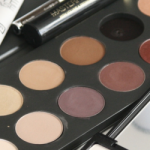Mastering the art of makeup entails a diverse set of makeup artist skills which are crucial for a makeup artist’s success. These encompass expertise in color theory, proficiency in various application techniques, adaptability to different skin types, and strong client communication abilities.
In this blog, we will explore the extensive repertoire of skills essential to becoming a makeup artist. We’ll delve into the nuances of color blending, contouring, and creative application methods. Additionally, we’ll uncover the journey to becoming a makeup artist, their roles, responsibilities, and the pivotal aspects shaping this dynamic profession.
Table of content
Who is a Makeup Artist
How to Become a Makeup Artist
Roles and Responsibilities of a Makeup Artist
Skills Required to be a Makeup Artist
Starting Salary of Makeup Artist in India
Average Salary of Makeup Artist in India
Who is a Makeup Artist?
Makeup artists are artistic professionals with an adept understanding of cosmetics and their application techniques. They possess an innate talent for enhancing facial features, using makeup to highlight and contour, creating unique looks tailored to diverse occasions or projects.
Their skill set extends beyond makeup application; they decipher clients’ preferences, interpret concepts, and translate them into stunning visual representations. Collaborating closely with clients, models, or production teams, they bring forth creative visions while staying updated on industry trends and techniques.
With a blend of technical proficiency, creativity, and an understanding of individual aesthetics, makeup artists play a pivotal role in empowering individuals and shaping the visual narratives of various industries. Their versatility and artistry serve as a bridge between imagination and stunning reality.
How to Become a Makeup Artist?
There are few makeup skills you need to have if you want to pursue makeup as a career. Here’s a detailed breakdown on how to become a makeup artist:
Education and Training: Enroll in reputable beauty schools, cosmetology programs, or specialized makeup courses. These programs cover essential topics such as color theory, skin types, sanitation and makeup application techniques. Completing these courses provides a foundational understanding of makeup artistry.
Practice and Skill Development: Practice is key. Experiment with different makeup styles, work on various skin tones, and practice diverse techniques. Building a strong portfolio showcasing your skills across different looks—like bridal, editorial, avant-garde—helps in demonstrating your versatility to potential clients or employers.
Apprenticeship and Assistant Roles: Seek opportunities to work as an apprentice or assistant to established makeup artists. This hands-on experience offers insights into the industry, client interactions, and the workflow, while also allowing you to learn techniques and tricks from experienced professionals.
Networking: Attend industry events, workshops, and seminars. Networking with other professionals in the field, photographers, models, or stylists can open doors to collaborations and job opportunities. Establishing relationships within the industry can be pivotal for career growth.
Building a Professional Brand: Create a professional brand identity, including a strong online presence. Develop a website or portfolio showcasing your work, engage on social media platforms to display your skills, and maintain a professional image across all communication channels.
Certifications and Licenses: Depending on your location, obtaining certifications or licenses may be necessary. Ensure compliance with local regulations and certifications that might be required for specific sectors like film, theater, or medical aesthetics.
Continual Learning: Stay updated on the latest trends, products, and techniques. Attend workshops, online courses, or makeup trade shows to refine your skills and keep your knowledge current in this ever-evolving industry.
Remember, success in this field often requires dedication, resilience, and a continuous pursuit of improvement in both technical skills and business acumen.
Roles and Responsibilities of a Makeup Artist
A makeup artist’s roles and responsibilities encompass various tasks related to enhancing the appearance of individuals using cosmetics and specialized techniques. Here’s a breakdown:
- Consultation: Understanding clients’ preferences, skin type, and the look they want to achieve. This involves effective communication and the ability to suggest suitable makeup styles.
- Skin Analysis: Assessing the client’s skin type, tone, and texture to determine the most appropriate products and techniques. This includes knowledge of various skin conditions and how makeup interacts with them.
- Makeup Application: Applying makeup for different purposes such as weddings, events, fashion shoots, films, etc. This involves expertise in using various makeup products like foundation, concealer, blush, eyeshadow, eyeliner, lipstick, etc., to create the desired look.
- Special Effects Makeup: In cases of theater, films, or specific events, makeup artists might specialize in creating special effects like aging, wounds, scars, fantasy looks, etc., using prosthetics, body paints, and other specialized techniques.
- Hygiene and Safety: Maintaining cleanliness and hygiene standards for all makeup tools and products to prevent skin issues or infections. This includes proper sanitation practices for brushes, sponges, and other equipment.
- Knowledge of Products: Keeping up-to-date with new makeup products, brands, and trends. Understanding the qualities and uses of different products for various skin types and tones.
- Client Education: Providing advice and tips to clients on skincare routines, makeup application techniques, and product recommendations.
- Collaboration: Working closely with photographers, stylists, hairdressers, and other professionals in the beauty and fashion industry to create cohesive looks.
- Adaptability and Creativity: Being adaptable to different client preferences and situations while showcasing creativity in transforming looks to suit specific themes or requirements.
- Time Management: Working efficiently to meet deadlines, especially in industries like film and television where time constraints are critical.
- Professionalism: Maintaining a professional demeanor, being punctual, and delivering high-quality work consistently to build a good reputation.
Ultimately, a makeup artist’s role is not just about applying makeup but also about understanding their clients’ needs, having technical expertise, and staying updated with industry trends to create stunning and appropriate looks for various occasions.
Skills Required to be a Makeup Artist
Makeup artists count on robust makeup skills to feel assured while working closely with clients. They often depend on self-drive to sustain top-notch performance during busy days with consecutive appointments or during exceptionally busy periods. Here are six skills needed to be a makeup artist:
Creativity: Makeup artists leverage creativity to tailor looks that enhance individual features. They craft color schemes that complement diverse skin tones and may use vibrant hues to accentuate eyes, lips, and brows. In industries like film and theater, creativity extends to creating intricate designs and using bold colors to ensure visibility from a distance, effectively conveying characters’ personas and ages.
Application Techniques: Makeup artists employ various techniques to achieve specific finishes, using tools like brushes, sponges, and eyelash curlers. Different brush sizes and shapes cater to various face contours, such as using a large tapered brush for cheek contouring and a smaller flat brush for precise concealer application.
Product Knowledge: Proficiency in product selection tailored to different skin types and desired finishes is crucial. This knowledge ensures the use of long-lasting and suitable products, enhancing client satisfaction. Additionally, awareness of tools like mirrors, storage solutions, and lighting setups contributes to a more efficient and effective work environment.
Customer Service: Strong interpersonal skills aid in positive client interactions. Active listening and effective communication help in understanding client preferences and delivering accordingly. A good rapport with clients leads to repeat business, positive reviews, and referrals, enhancing the makeup artist’s reputation.
Photography: Understanding photography basics helps makeup artists capture and present their work effectively on social media platforms. Knowledge of framing and suitable equipment enhances the visual appeal of their profiles. Moreover, in professional settings like photo shoots, understanding lighting and camera effects ensures makeup translates well on camera.
Cleanliness: Maintaining hygiene is paramount for makeup artists who work on multiple clients. This involves thorough sanitation of tools and products to prevent cross-contamination. Understanding proper cleaning methods for tools and workstations ensures a clean and professional working environment.
Starting Salary of Makeup Artist in India
For budding makeup artists in India, the starting salary can vary based on multiple factors such as location, expertise, clientele, and the specific industry they are entering. Typically, entry-level makeup artists might begin with hourly rates or project-based fees. In metropolitan cities like Mumbai, Delhi, or Bangalore, the starting salary for a beginner might range from INR 8,000 to INR 15,000 per month. However, this figure can significantly fluctuate based on whether they work freelance, for a salon, or in the entertainment industry. Those assisting established makeup artists or undergoing training programs may start at lower compensation until they gain experience and build their portfolio.
Average Salary of Makeup Artist in India
The average salary of a makeup artist in India varies widely, influenced by experience, expertise, clientele, and location. A mid-career makeup artist with a few years of experience and a decent client base might earn significantly more. In metropolitan areas or regions with a high demand for makeup services, established makeup artists can make anywhere between INR 25,000 to INR 50,000 per month. Those with a strong portfolio and a foothold in the film, television, or fashion industry might earn even higher, potentially exceeding INR 1 lakh per month. Freelance makeup artists may have varying income depending on the number of clients, type of projects, and their marketing strategies.
Both the starting salary and average salary of makeup artists in India are subject to change based on economic factors, industry demand, individual skill level, and the evolving trends in the makeup and beauty industry.
Conclusion
In the realm of makeup artistry, success isn’t solely measured by income but by the mastery of makeup artists skills. Creativity, technical proficiency, interpersonal finesse, adaptability, attention to detail, time management, business acumen, hygiene practices, and a commitment to continuous learning are the essential makeup artist skills that pave the way for a thriving career as a makeup artist. Beyond financial gains, it’s the passion for makeup coupled with these honed skills that sets the stage for an impactful journey in this dynamic and creative industry.
























